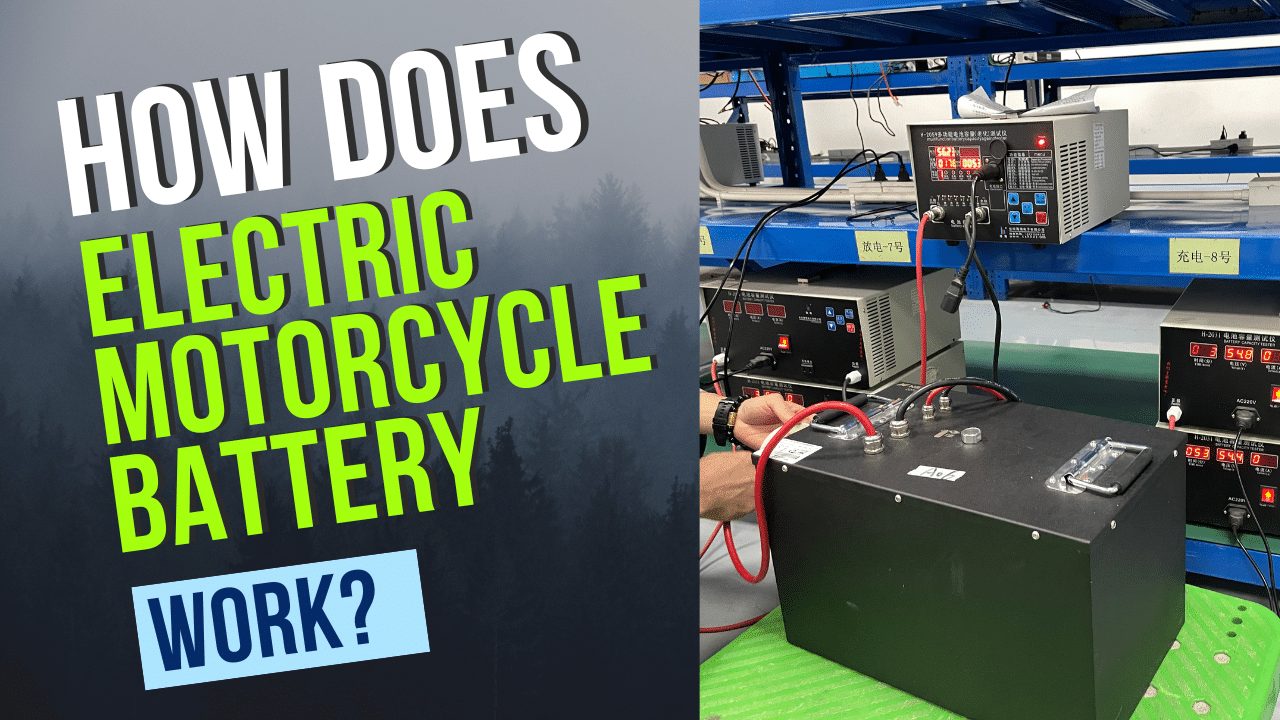Are you thinking converting a motorcycle to electric one? You’re in the right place! The increasing presence of electric motorcycles in the market is undeniable.
New models and brands continually enter the scene, capturing attention with the promise of savings in times of soaring fuel prices.
However, as this shift is still relatively novel, few individuals have had the opportunity to own or ride an electric motorcycle. This leads to questions about its construction and functionality.
But fear not, as we are here to shed light on the numerous differences compared to combustion models. Read on to gain a deeper understanding!
How do Electric Motorcycles Work?
Despite visual similarities, electric motorcycles differ in operation compared to conventional ones. They are powered by an electric motor, usually fueled by one or more lithium-ion or lead batteries, as opposed to the gasoline-powered internal combustion engines found in traditional motorcycles.
Rather than visiting a gas station to refuel, electric motorcycle owners connect their vehicle to an outlet, waiting a few hours to complete the battery charge or extend its autonomy by a few kilometers. Fast charging stations can significantly reduce this time, sometimes taking only a few minutes.
Some models even allow users to exchange discharged battery modules for fully charged ones at specialized stations. Riding an electric motorcycle is remarkably similar to driving a combustion motorcycle, with the added advantage of not needing to change gears, providing a more comfortable and straightforward riding experience. Accelerating on the handle on the right side is all it takes for the electric bike to gain speed.
Are Electric Bikes More Economical?
In general, yes. To cover a distance of 100 km, an electric motorcycle consumes an average of 2 kWh, while a 160 cm³ combustion model, like the Honda CG, needs about 2.5 liters of gasoline, on average.
Considering the cost of kWh at $ 0.25USD and the average price of a liter of regular gasoline ($ 1.31), traveling 100 km with an electric motorcycle would cost $ 0.52, while a gasoline vehicle would cost $ 3.5USD for the same distance.
The cost-effectiveness depends on individual needs. For instance, if a motorcyclist travels 100 km per week, the increase in their electricity bill would only be $2USD. In contrast, applying the same calculation to a 160 cm³ motorcycle with an average gasoline price of $ 1.31 per liter, the monthly fuel expense would exceed $ 8USD.
What is the Service Life of an Electric Motorcycle?
The durability of an electric motorcycle battery depends on its manufacture and model, with no defined standard time. Currently, the average service life of these batteries is around 4 years. Frequent use directly impacts battery life, and daily extensive routes accelerate wear.
Do I Need a License to Ride an Electric Motorcycle?
To ride an electric motorcycle with a power of less than 4 kW, a National Driving License is mandatory. Any vehicle exceeding a maximum speed of 25 km/h also requires the corresponding license in most area (better to consult with local regulations). However, scooters, unicycles, and electric bicycles with pedals do not require a license.
Do I Have to Register the Electric Motorcycle?
Registration is necessary if a license is required to drive the electric motorcycle. Some electric motorcycles are already registered with traffic agencies and legalized by authorities, emphasizing the importance of verifying this when purchasing such a vehicle.
Advantages of Electric Motorcycles
- Lower cost to supply
- Lower maintenance cost
- Environmentally friendly (does not pollute)
- Quiet operation
Disadvantages of Electric Motorcycles
- High purchase price
- Less autonomy between each recharge
- Limited availability of charging stations
Can You Ride an Electric Motorcycle on the Street?
Yes, according to regulations from different countries, electric motorcycles must have a plate to circulate in public areas, you’d better to get familiar with your local regulations then let us provide you with necessary file to get the electric motorcycle registered.
It’s crucial to note that electric motorcycles are not allowed in bicycle lanes, which are reserved for bicycles, roller skates, and pedestrians.
In conclusion, electric motorcycles present an appealing option for those seeking a cleaner and more efficient alternative to fuel-powered bikes. If you still have questions towards the electric vehicles, please contact our team for more information.








